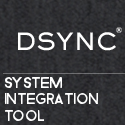Nina Paley has certainly stirred things up with her recent “rantifesto” on free culture and free software. It has spawned numerous responses on various blogs, both from supporters and those who disagree with her contention that the Free Software Foundation (FSF) is being hypocritical in its licensing of its web pages and other non-software works. For some people it is a bit galling to see an organization that is set up to ensure the right to create and distribute derivative works (subject to some conditions, of course) of software, be so steadfast in its refusal to apply those same freedoms to text and other works.
Paley’s main example is quite cogent. In her essay, she restates the famous “four freedoms” from the FSF’s free software definition and applies them to free culture. In doing so, she has arguably created a derivative work of the FSF’s definition, which is not compatible with the “verbatim copying license” that governs text on the GNU web site. Though the FSF web site (unlike the GNU web site) is covered by the Creative Commons Attribution-NoDerivs (CC BY-ND) license, and Paley confuses the two a bit, either of the those two licenses would restrict derivative works. It’s a little hard to argue, however, that what Paley has done is not in keeping with the spirit of free software even though it has been applied to text that is specifically licensed to restrict that kind of activity.


Leave a Reply